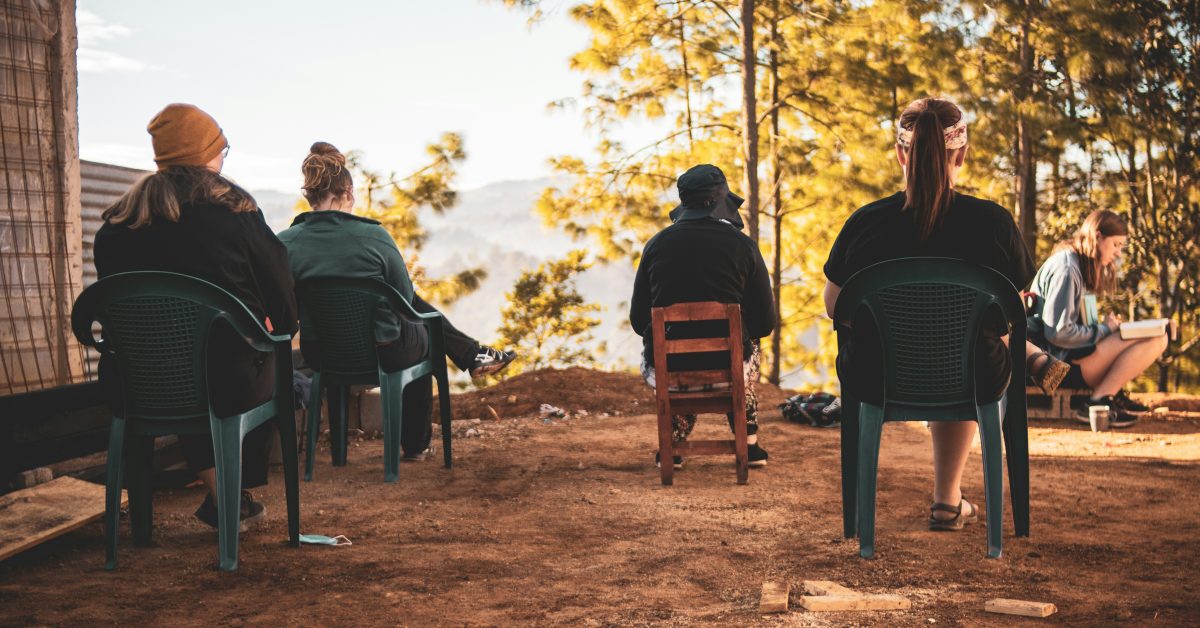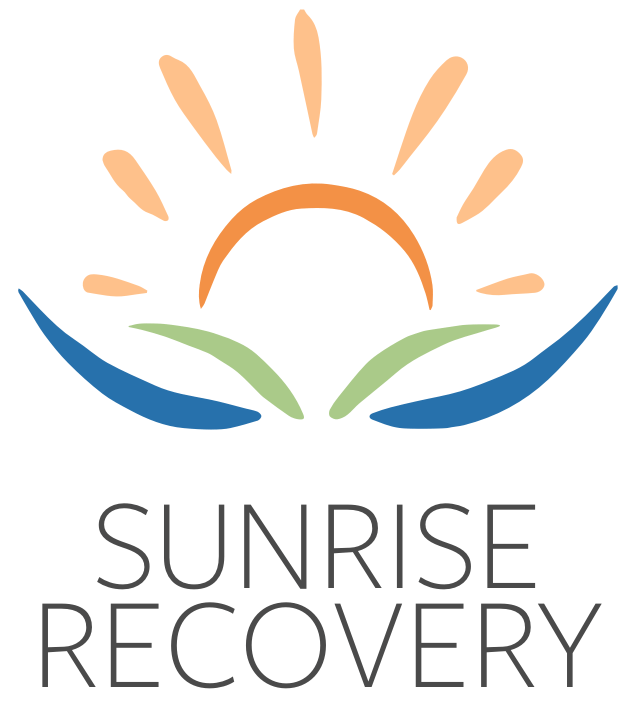Connection is a foundation of long-term recovery. Many people healing from addiction, trauma, or mental health challenges begin to improve when they feel supported by others. Recovery becomes more sustainable when individuals have strong relationships that provide safety, trust, and encouragement. These connections can also restore a sense of identity, which is often lost during active addiction or periods of isolation.
Social Wellness Month provides a time to focus on the skills needed to maintain healthy relationships. It is observed every July and encourages people to strengthen the bonds that improve their emotional and physical health. In recovery, social wellness helps individuals rebuild trust, repair damaged relationships, and create new support systems. Building healthy, nurturing, and supportive relationships is often a turning point in the recovery process. It can also lay the foundation for healthy coping strategies and long-term behavior change.
This article explores how relationships can benefit you and help you grow during recovery. It will explain the role of connection in healing, highlight the impact of group therapy and boundary-setting, and offer practical strategies for building social wellness. Each section provides tools to help you foster supportive relationships and overcome barriers to connection, whether you are early in your journey or years into sustained recovery.
Why Social Connections Matter in Recovery
Social connection helps people regain confidence, purpose, and emotional balance during recovery. Relationships shape daily habits, influence mental and physical health, and provide a sense of safety. According to wellbeing theory, consistent social interaction activates brain systems linked to reward, which supports long-term healing and emotional regulation.
These are some of the most important reasons why social connections matter in recovery:
- They reduce social isolation: Addiction weakens communication skills and often leads to emotional distance from others. Building meaningful, supportive relationships restores trust and allows people to feel seen and heard again.
- They offer emotional and practical support: People grow relationships and receive social support from friends and family. These interactions reduce feelings of loneliness and increase accountability during difficult moments in recovery.
- They improve physical and mental health: Social wellness supports physical health by lowering stress, strengthening the immune system, and improving sleep quality. The benefits of social wellbeing include more energy, greater focus, and better mood regulation.
- They create opportunities to support others: Giving back encourages healthy personal relationships and promotes overall mental health and emotional growth. The power of connection becomes stronger when individuals feel useful and valued in return.
- They bring structure and purpose to each day: You can work with a health coach and set a goal that encourages connection-based routines and consistent habits. Fostering positive connections can help you get active and make changes that support long-term stability.
- They support more complex recovery goals: Social relationships are especially important for people facing both mental health and substance use challenges. Dual diagnosis treatment often includes skill-building around communication, connection, and emotional regulation for better outcomes.
Connection helps people stay grounded during recovery. Learning how to create positive social habits gives structure to daily life and supports lasting progress. Supportive relationships increase motivation and help people stay engaged with their goals.
The Power of Group Therapy in Building Connections
Group therapy creates space for learning, support, and emotional repair. It offers a structured environment where people can explore relationships, rebuild trust, and form consistent social interactions. This setting builds social connectedness, which is often missing during periods of addiction or emotional distress.
Creating Safe Spaces for Vulnerability
Many people in early recovery feel unsure speaking honestly in front of others. Group therapy provides a safe, nonjudgmental space where participants can express their thoughts without fear of rejection. This setting fosters positive connections and makes room for emotional healing to begin.
As people continue attending sessions, the group environment becomes more comfortable. Individuals learn to share at their own pace and support others who are doing the same. Being part of a group can help you get active and make changes through encouragement and steady accountability.
Learning Through Shared Experience
Many people in recovery feel like their pain is unique and impossible to explain. Group therapy helps shift that belief by showing that others carry similar fears, doubts, and emotional wounds. Hearing connection examples from peers reduces shame, promotes empathy, and builds emotional safety that supports long-term healing.
Will, a man who once struggled with addiction, began writing his thoughts one night and discovered he had a gift for poetry. With encouragement from his friend Melissa and support from a structured treatment program, he gained the tools he needed to stay sober and rebuild his life. After completing care, he continued through an outpatient program in Indiana, eventually publishing a book called Hillbilly Gospel on Amazon, which reflects the raw and honest realities of recovery.
His experience highlights how shared vulnerability in group therapy can lead to healing, personal growth, and a deeper connection to others. Will’s story is a reminder that meaningful breakthroughs often happen in the presence of community, not in isolation.
- Validation of emotions: Hearing similar stories from others helps people realize their feelings are valid and understood.
- Reduction of shame: Honest conversations in a group setting make it easier to accept the past without judgment.
- Strengthened trust: Shared support builds trust in both the process and the people walking through it together.f
- New coping tools: Peer strategies often introduce helpful practices like journaling, mindfulness, or creative outlets.
- Sense of belonging: Group connection replaces isolation with community and offers consistent emotional support.
Shared experience reminds people that they do not have to heal alone, and connection can often accomplish what isolation cannot.
Building Communication Skills
Group therapy helps people develop clear, respectful communication. Each session offers space to practice listening, respond thoughtfully, and speak with intention. These skills are essential for building healthy relationships beyond the group setting.
Social Wellness Month is celebrated each July and serves as a reminder for individuals to learn how to create positive social habits. Practicing these habits in group sessions helps strengthen empathy, assertiveness, and emotional awareness. Over time, these skills carry over into everyday life and improve long-term relationship health.
Setting Healthy Boundaries: Your Recovery Compass
Boundaries are a necessary part of emotional recovery, especially for people rebuilding relationships after addiction. They create structure, reduce confusion, and help define what behaviors are acceptable and what situations are not. Setting boundaries allows people to protect their time, energy, and mental health while staying open to connection and growth.
Understanding What Boundaries Really Mean
Boundaries are not designed to shut people out or isolate yourself from others. They are meant to protect your emotional space and create clarity in how you relate to others. Healthy boundaries support building healthy, nurturing, and supportive relationships that feel safe and respectful on both sides.
Many people in recovery have never learned how to set boundaries, especially if they grew up around unhealthy dynamics. When limits are unclear, it becomes harder to manage emotions, trust others, or maintain stability. Boundaries encourage healthy personal relationships and promote overall mental health by supportive emotional regulation and respect.
Practical Boundary-Setting in Recovery
It can be difficult to say no, especially for people who are used to avoiding conflict or placing others’ needs ahead of their own. Recover offers the opportunity to build these skills gradually by starting with small steps and applying them consistently. Learning practical ways to set boundaries helps people feel more confident, emotionally balanced, and in control of their time and energy.
- The boundary sandwich: Begin with a kind or affirming statement, follow with the boundary, and close with reassurance to preserve the relationship.
- Written boundaries: Write down your limits before a conversation to organize your thoughts and stay grounded during the discussion.
- Scheduled check-ins: Set regular times to assess emotional energy and identify situations where boundaries may need to be adjusted.
- Use of “I” statements: Express needs using statements like “I feel” or “I need” to stay respectful and direct.
- Physical space planning: Create time or space limits in shared environments to prevent emotional overload or unwanted interactions.
By practicing these methods in safe environments like wellness programs, group therapy, or activities at work, people learn how to protect their emotional safety while maintaining meaningful connections.
Boundaries in Group Settings
Boundaries are also essential in shared healing spaces like group therapy. When group members allow time limits, stay present, and speak respectfully, it creates a setting where everyone feels safe. These behaviors help foster positive connections and reduce misunderstandings in emotionally sensitive environments.
In a structured setting such as an inpatient residential program, boundary-setting is part of daily life. People learn to balance sharing space with protecting their emotional needs, which prepares them for relationships outside of treatment. These practices also support long-term recovery and help individuals grow relationships and receive social support from friends and family over time.
Building Community Support Beyond Treatment
Recovery does not end when treatment is complete. The process of healing continues through relationships, routines, and supportive communities that reinforce positive change. Community support gives structure to life after treatment and reduces the risk of isolation, which often contributes to relapse.
Finding Your Tribe
After leaving formal treatment, many people need help identifying where they fit in. Finding a group that shares your values, goals, or levied experience can provide a powerful source of encouragement and belonging. Building meaningful, supportive relationships outside of clinical settings can help reduce stress and maintain accountability.
Several recovery communities offer structure, connection, and regular interaction. These include:
- 12-Step Groups: Programs like Alcoholics Anonymous (AA) or Narcotics Anonymous (NA) provide peer support, mentorship, and spiritual growth.
- SMART Recovery: A science-based, non-religious approach focused on self-management and cognitive strategies.
- Recovery Dharma: A Buddhist-inspired community that emphasizes mindfulness and shared experience.
- Faith-Based Recovery Groups: Church-based support groups that integrate spiritual growth and community connection.
- Online Forums and Digital Communities: Platforms where people can grow relationships and receive social support from friends and family, even at a distance.
These communities create space for authentic connection, allowing individuals to practice social wellness in ways that reflect their values, beliefs, and emotional needs.
The Role of Peer Support
Peer support fills the gap between professional care and everyday life. People who have experienced similar struggles can offer validation, understanding, and real-life advice. These relationships help encourage healthy personal relationships and promote overall mental health through shared learning.
Peer support also reinforces commitment to sobriety. When people support each other with honesty and respect, trust grows naturally over time. Being accountable to someone who truly understands the journey can make it easier to stay focused during difficult moments.
Creating Structure for Social Wellness
Social wellness does not happen by accident because it is something people build with intention and consistency. Creating daily or weekly check-ins with peers, joining community events, or scheduling recovery-based activities can help maintain emotional balance. These routines are part of the self-care strategies of long-term recovery.
Programs that combine lifestyle habits with emotional support tend to work well after treatment. Many people find that activities at work or group hobbies become a source of ongoing connection. Social wellness supports physical health and emotional stability when it is integrated into everyday life.
Overcoming Social Anxiety in Recovery
Social anxiety is common during recovery, especially for those who have spent years avoiding vulnerability or connection. The fear of being judged, misunderstood, or rejected can make it difficult to join support groups, speak openly, or meet new people. Learning how to manage social anxiety helps people access the benefits of social wellbeing without feeling overwhelmed or unsafe.
Addressing the Fear of Judgment
Fear of judgment often stems from past experiences, especially those involving rejection, failure, or shame. In recovery, people are learning to rebuild self-esteem and redefine how they see themselves in social settings. Group therapy and peer support help reduce this fear by creating safe spaces where people feel accepted, not evaluated.
Reframing your thinking is a helpful step toward change. Instead of focusing on how others might react, it helps to notice how you feel after a positive social interaction. Most people report feeling lighter, more hopeful, and more connected after opening up in safe, structured environments.
Building Confidence Through Small Steps
Marcus, a young man in recovery, avoided social events because he feared being misunderstood or saying something wrong. He began by attending short group meetings and listening without speaking, which helped him feel present without pressure. In time, he saw that simply showing up was progress, and he slowly began sharing small parts of his story with others.
As his confidence improved, Marcus volunteered to lead short activities during sessions and joined a recovery-based running club in his community. The club gave him a way to connect with others in a low-pressure environment, helping him build friendships through shared goals. His story shows that social wellness can grow through small, intentional efforts that feel manageable and supportive.
Practical Activities for Social Wellness Month
Social Wellness Month is an opportunity to strengthen your support system through intentional action. Connection improves emotional stability, reduces stress, and encourages long-term recovery. Participating in group or individual activities during this time can help people feel more engaged, present, and supported.
Group Activities that Foster Connection
Group activities help build structure, improve communication, and strengthen trust through shared experiences.
- Wellness walks: Walking in parks or local trails encourages relaxed conversation and supports employee wellness in casual settings.
- Creative workshops: Activities like art or writing encourage holistic self-expression while fostering shared connection.
- Support group potlucks: Sharing meals allows space to ask questions and connect without pressure.
- Peer-led discussion groups: Talking through recovery topics promotes empathy and applies ideas from the emotional wellness wheel.
- Volunteering: Helping others reinforces accountability and improves personal and workplace relationships.
These activities promote consistency and let people experience social wellness through shared engagement.
Individual Practices That Support Social Wellness
Intentional solo habits help improve emotional awareness and support personal growth between group interactions.
- Gratitude journaling: Writing about meaningful relationships strengthens mindset and emotional clarity.
- Daily check-ins with a friend: A short message or call maintains support and builds consistency.
- Social goal tracking: Setting weekly connection goals encourages reflection and sustained effort.
- Practicing mindfulness: Staying present improves listening and supports a more holistic recovery.
- Self-affirmations: Positive reminders boost self-worth and readiness for healthy social interaction.
These simple practices encourage long-term connection and emotional growth.
Technology and Social Wellness
Digital tools help build social wellness by supporting consistent communication and bridging physical distance.
- Online support groups: Virtual meetings offer connections for people who cannot attend in person.
- Recovery tracking apps: Logging progress encourages structure and supports the emotional wellness wheel.
- Scheduled video calls: Regular calls strengthen bonds in long-distance or workplace relationships.
- Peer messaging threads: Group chats reduce isolation and provide space for daily check-ins.
- Digital event reminders: Alerts support follow-through and make social connection more consistent.
Using technology with intention can enhance social wellness without replacing real-world support.
Final Thoughts
Social Wellness Month provides a time to focus on the skills needed to maintain healthy relationships and rebuild trust after addiction. Throughout recovery, supportive relationships offer stability, encourage growth, and create space for healing. Group therapy, boundary-setting, and consistent peer support each build connection and strengthen the belief that recovery happens with others.
Key takeaways from this guide include:
- The importance of shared experience in group therapy and community spaces
- The value of practical boundary-setting in protecting emotional wellbeing
- The role of community support in sustaining long-term wellness
- The impact of consistent habits that strengthen social connectedness
- The connection between healthy relationships and improved mental health
For people managing both addiction and mental health conditions, social wellness becomes even more important. A dual-diagnosis approach recognizes that relationships can support emotional regulation and recovery at the same time. Creating structure around social interactions helps reduce stress and makes it easier to stay grounded through periods of vulnerability.
If you are working through recovery, consider what types of connection help you feel supported, understood, and emotionally safe. Choose one small action this month to strengthen your social wellness. What would change if you allowed connection, not fear, to guide your next step?
Frequently Asked Questions (FAQs)
How does social wellness specifically benefit addiction recovery?
Social wellness supports addiction recovery by creating safe, supportive relationships that reduce relapse risk, improve emotional stability, and encourage long-term engagement in healthy routines.
What are the most important boundaries to set in early recovery?
Setting boundaries around time, communication, and emotional energy helps create structure and protect progress during the early stages of recovery.
What types of group therapy programs does Sunrise Recovery offer?
Sunrise Recovery offers group therapy options focused on relapse prevention, emotional skills, and peer support to help individuals build healthier relationships and stay accountable.
How do I know if I need dual-diagnosis treatment?
If you are facing both mental health symptoms and substance use issues, dual-diagnosis treatment can help address both conditions in a coordinated and structured way.
What ongoing support does Sunrise Recovery provide after completing treatment?
Ongoing support may include outpatient programs, peer mentorship, and access to community resources that reinforce connection and maintain recovery progress.







